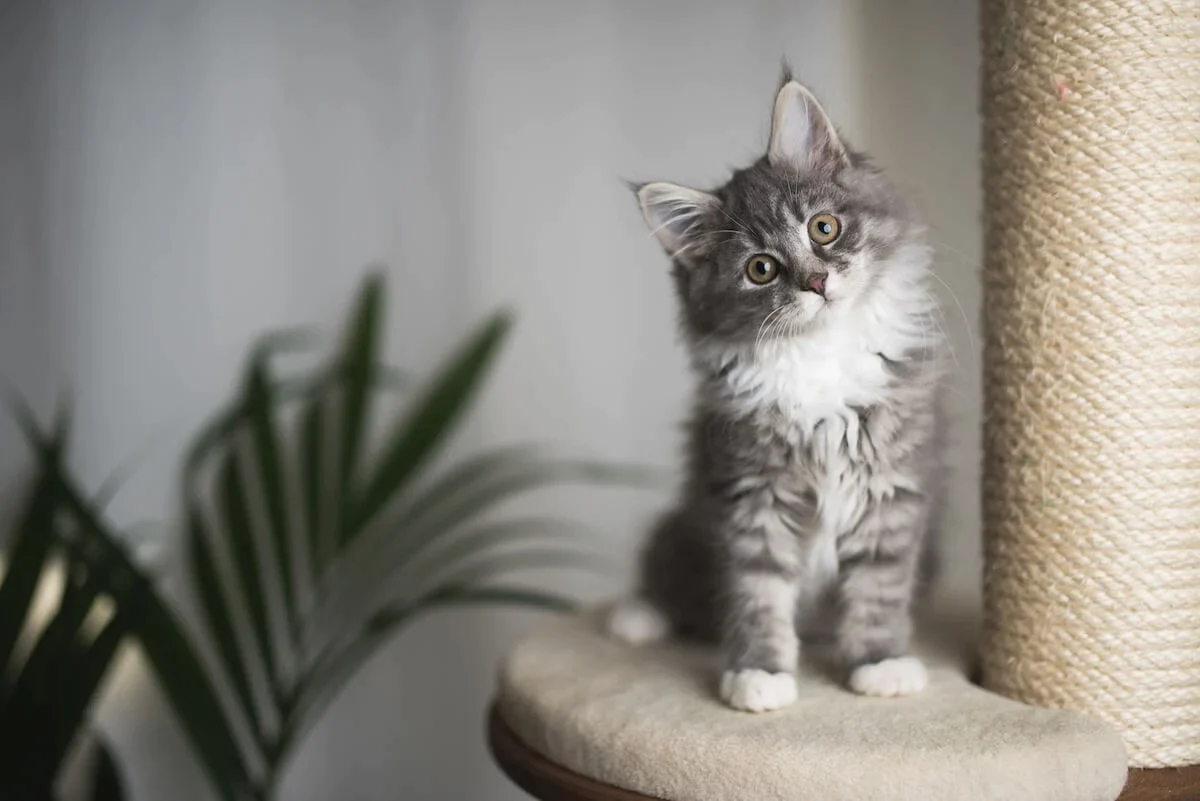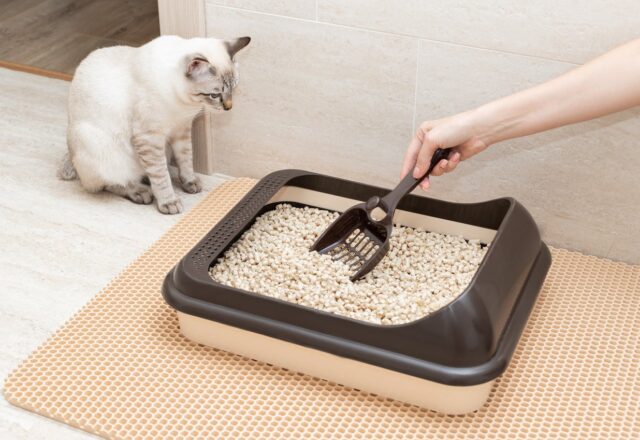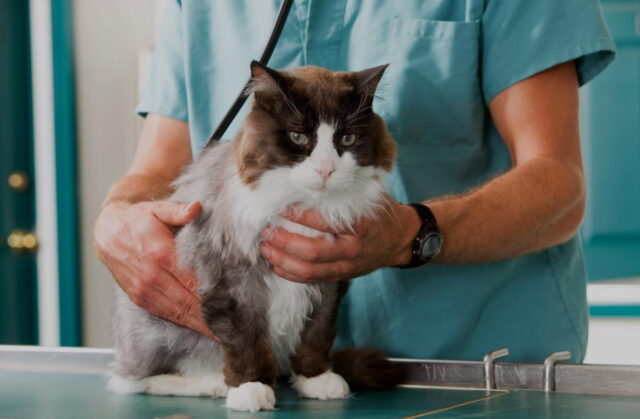
Our feline companions possess a unique ability to communicate with us, even though they can’t use spoken words. Their language is expressed through subtle cues and nonverbal signals that speak volumes about their well-being.
As devoted cat owners, we must decipher these messages and understand when our furry friends are not feeling their best.
This comprehensive guide will explore the fascinating world of cat communication and delve into common health conditions that cats may experience. By becoming fluent in their silent language, we can better support their health and happiness.
The Mysterious Litter Box Code
Our cats are meticulous creatures, and deviation from their usual litter box routine, like a cat not using the litter box can be a significant red flag. When your cat experiences litter box issues, such as urinating outside the box or struggling to defecate, something isn’t right.
They may suffer from urinary tract infections, bladder stones, or stress-related problems. To address these issues, provide a clean and accessible litter box, and ensure your cat’s diet is balanced and hydrating. Consult with your veterinarian to rule out any underlying medical conditions in severe cases.

The Hidden Language of Appetite
Cats are notorious for their discerning palates, but changes in their eating habits can indicate a range of health concerns. If your cat suddenly loses interest in food or exhibits a reduced appetite, it might be a sign of dental, gastrointestinal, or organ dysfunction.
Conversely, excessive hunger or uncontrolled weight gain may point to metabolic disorders. Pay attention to any abnormalities in their eating patterns, monitor their weight, and consult with your vet for a comprehensive evaluation and suitable dietary adjustments.
Unmasking the Clues in Coat and Skin
Your cat’s luxurious fur is a stunning accessory and reflects its overall health. A dull or matted coat, excessive shedding, or sores and rashes could signal underlying problems such as allergies, parasites, or hormonal imbalances.
Additionally, compulsive licking or scratching may point toward anxiety or pain. Regular grooming sessions, a balanced diet, and prompt vet intervention, can help restore your cat’s coat to its former glory while addressing potential health issues.
Cracking the Code of Foul Odors
While cats are known for their impeccable cleanliness, unpleasant odors should not be ignored. If your cat emits foul-smelling breath, experiences strong body odor, or has abnormal stool odors, it might be a sign of dental disease, gastrointestinal issues, or infections.
Foul-smelling urine could indicate urinary tract infections or kidney problems. Prompt veterinary attention, oral hygiene, and appropriate diet adjustments can alleviate these concerns and restore your cat’s fresh scent.

Deciphering Changes in Behavior
Our feline friends have unique ways of expressing discomfort or distress through weird behavior. If your cat becomes unusually lethargic, withdraws from social interactions, or displays aggression, it may indicate pain, illness, or stress.
Conversely, excessive vocalization, restlessness, or destructive behavior may be a cry for attention or stimulation. By recognizing these behavioral shifts and providing appropriate mental and physical enrichment, you can help your cat find balance and emotional well-being.
Unveiling the Language of the Eyes and Ears
A cat’s eyes and ears hold valuable clues to their health. The mesmerizing gaze of a cat can reveal a wealth of information about its well-being. If you notice excessive tearing, redness, cloudiness, or squinting in your cat’s eyes, it may indicate eye infections, allergies, or even more serious conditions like glaucoma or cataracts.
Ears, too, can provide insights into your cat’s health. Ear discharge, redness, or excessive scratching might suggest ear infections, mites, or allergies. Regularly examine your cat’s eyes and ears, and consult your veterinarian promptly if you observe any abnormalities.
Cracking the Enigma of Digestive Distress
Our cats are no strangers to digestive issues and often find subtle ways to communicate their discomfort. Vomiting, diarrhea, or constipation can signal underlying problems, such as dietary intolerances, infections, or gastrointestinal disorders.
Additionally, changes in the frequency or quality of bowel movements may indicate issues with digestion or hydration. Providing a balanced diet, ensuring access to fresh water, and seeking veterinary advice can help alleviate digestive distress and promote a healthy gut.

Decoding the Secrets of Breathing and Vocalization
How your cat breathes and vocalizes can be vital indicators of their health. Labored breathing, wheezing, coughing, or sneezing may suggest respiratory infections, allergies, or even heart conditions. Pay attention to any changes in their breathing patterns, and seek veterinary attention if you notice persistent abnormalities.
Vocalization is another crucial aspect of feline communication. Unusual vocalizations, excessive meowing, or yowling can signify pain, distress, or cognitive issues. Understanding the context of their vocalizations and addressing their underlying needs is key to ensuring their well-being.
Our feline companions may lack the ability to use spoken language, but they possess a sophisticated system of nonverbal communication. By observing their behavior, paying attention to changes in their body language, and recognizing the subtle cues they provide, we can gain valuable insights into their health and well-being. From litter box issues to changes in appetite, coat, behavior, and more, our cats reveal their secrets in unique and mysterious ways.
Empowered with this knowledge, we can proactively address their health concerns. By becoming fluent in the language of our feline friends, we can forge a deeper bond and ensure they receive the care and attention they deserve. So, listen closely to the whispers of your cat’s silent language whether from a cat not using the litter box to their breathing patterns. Through this understanding, we can provide them with a happier, healthier, and more fulfilling life.







